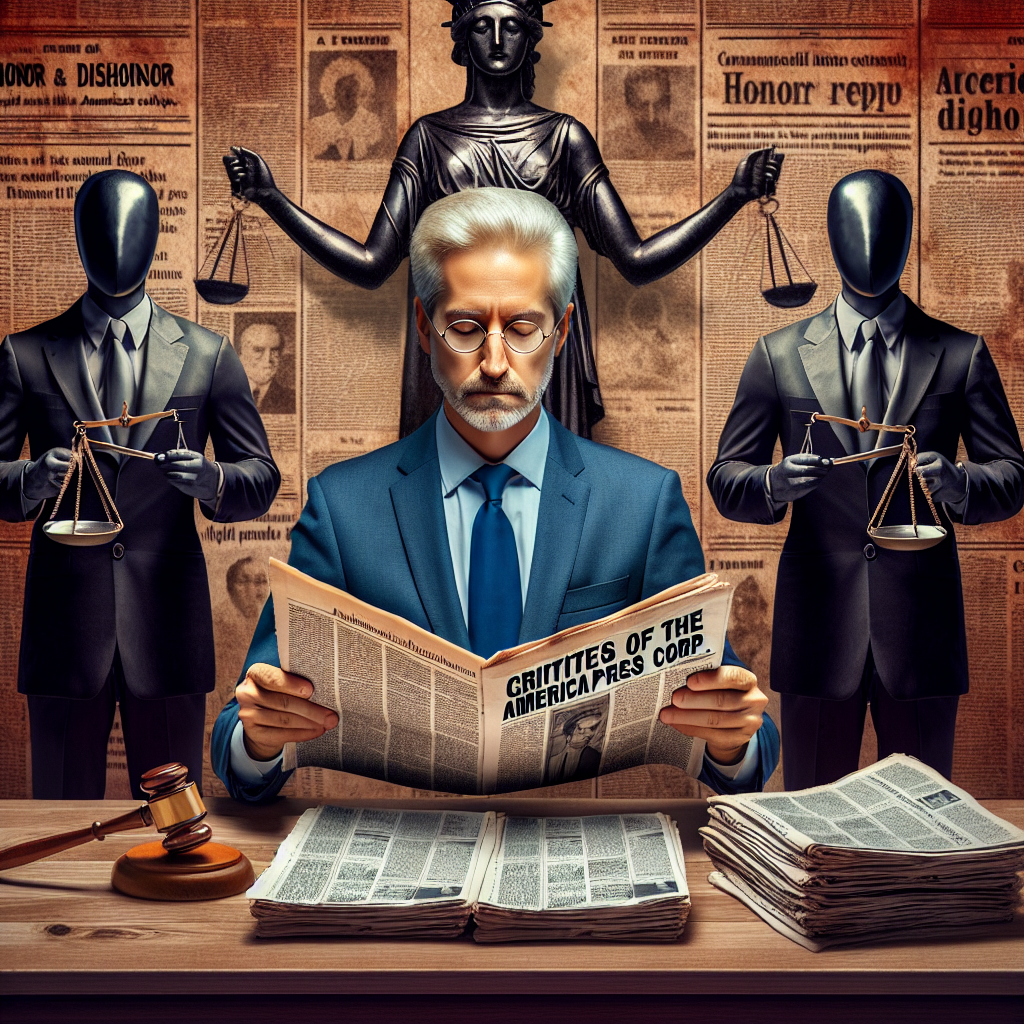Glenn Greenwald, a vocal critic of corporate media, expresses his incredulity at the latest instance of their alleged dishonesty, believing it to be one of the most egregious lies he has encountered in his career. He highlights that the media has a long history of misrepresentation, such as leading the nation into wars and orchestrating politically motivated scandals. Despite witnessing numerous outrages, Greenwald claims that the media’s recent twisting of former President Donald Trump’s comments regarding Liz Cheney reached a new low. This incident involved a distortion of Trump’s critique of Cheney, where he suggested that warmongers, like her, should experience the consequences of their advocacy for war firsthand. The media’s reaction reprehensibly mischaracterized this suggestion as a call for Cheney’s execution, demonstrating the lengths to which they would go for political ends.
The media spectacle surrounding Trump’s remarks not only reflects their deceptive practices but also reveals deeper political biases, particularly among Democrats. Greenwald argues that Democrats have successfully framed Cheney and similar figures as paragons of virtue, highlighting a disturbing trend toward glorifying neoconservatives and their militaristic agendas. This demonization of Trump’s ideas demonstrates a troubling reliance on sensationalism and dishonesty, fueling public skepticism towards established media narratives. Such manipulation is especially concerning given that surveys suggest the public is aware of, and critical towards, the media’s role in disseminating misinformation for partisan purposes.
Further complicating this situation is a recent article from Slate magazine that touches on Usha Vance, the wife of influential political figure J.D. Vance. The article suggests that she should divorce her husband due to his political affiliations and rhetoric associated with Trump. It posits that Usha’s reluctance to leave Vance stems from her perceived internalization of racist and patriarchal norms, claiming that her loyalty reflects a sort of dependency on her husband’s white privilege. This analysis has incited considerable debate by positioning Usha within a framework of victimhood, and highlights the problematic tendency of some media and political commentators to impose their ideals on individuals from minority backgrounds who don’t conform to expected narratives.
In this milieu, there is also a broader discussion concerning the role of women in political discourse and how the liberal establishment perceives women from minority backgrounds who dissent from progressive ideologies. Echoing sentiments from the Harris campaign, the media’s characterization of Usha Vance seems to suggest that women in marginalized communities are incapable of independent thought and are inherently oppressed if they do not align with liberal political tenets. Greenwald critiques this stance as a form of paternalism and ideological control, asserting that it overlooks women’s agency and individuality.
Greenwald’s commentary brings to light the intersection of race, gender, and political ideology, particularly within the context of ongoing divisive culture wars in America. Women like Usha Vance present a challenge to the binary ideologies of mainstream liberal thought, leading to backlash when they stray from expected roles. This phenomenon not only reveals a condescending attitude toward marginalized women, but also reflects an urgent need for introspection within leftist circles regarding their treatment of dissenters. The social and political ramifications of such attitudes may alienate potential allies or individuals seeking to deviate from prescribed narratives.
Ultimately, Greenwald’s judgments on the media’s ethics and the dynamics surrounding figures like Usha Vance speak to larger trends in American politics that warrant critical examination. The interplay of media, political actors, and public perception raises questions about accountability, representation, and truth in journalism. As misinformation continues to shape political discourse, those within the media and political spheres must recklessly examine their roles and strive for a more truthful, transparent engagement with the American public and its multifaceted narratives.

